Despite huge popularity, nearly a quarter of NHS walk-in clinics offering seven-day care and evening opening have closed in the past three years, according to research by Monitor, the health service regulator.
It said there was a danger that closures could leave some patients unable to access GP care, particularly those unable to register with a surgery, as well as low-income working families and high-risk socially excluded groups such as homeless people, refugees and drug addicts.
More than 230 centres offering family doctor services were set up in England in the decade to 2010 under a Labour government initiative to improve access to care for patients who found it hard to register with their local GP or were unable to get a speedy appointment at a time that suited them.
Ironically, some of the closures appear to be the result of the centres being too successful. NHS commissioning authorities that have closed walk-in centres told Monitor that the clinics triggered "unwarranted" demand among "worried well" patients for often minor conditions. Some said they had closed centres to make savings as they could "no longer afford the convenience that walk-in centres offer".
The closures are widely spread around England including in London, Plymouth, Southampton, Bristol, York, Manchester, Blackpool and Colchester. Six so-called "commuter" walk-in centres based at major railway stations in Manchester, London, Leeds and Newcastle, have closed in recent years after for failing to attract enough patients.
Monitor's research found nearly two-thirds of patients who attended walk-in centres were already registered with a GP. Of these, just over a fifth said they had contacted their GP practice beforehand but were unable to get an appointment. A further 24% said they did not even bother to contact their GP because they anticipated there would be no convenient appointments available.
Asked where they would have gone if the centre had not been available, one in five patients said they would have visited the nearest accident and emergency unit, raising the prospect that the closures will increase pressure on already stretched hospital emergency services.
David Cameron recently championed patient-friendly GP care, telling the Tory party conference last month that he wanted more GP surgeries to open from 8am to 8pm and at weekends, to reduce demand on A&E units and to "fit in with the lifestyles of working people".
However, Monitor's data shows that 53 walk-in centres have closed in the three years since the coalition came to power, and more face the axe as five-year operating contracts set up under the last government expire in 2014 and 2015.
Catherine Davies, Monitor's executive director of co-operation and competition, said: "While it is for commissioners to decide whether to keep a walk-in centre open, we need to make sure that the needs of patients are fully considered before decisions are taken."
The health minister, Lord Howe, said: "Patients should be able to access good-quality out-of-hours NHS services, without having to go to an A&E. Walk-in centres may be part of the answer, but this isn't a one-size-fits-all solution. Family GPs, community services and pharmacists all have a part to play."
Andy Burnham, the shadow health secretary, said it made no sense to close so many walk-in centres, which were popular with patients and an important means of relieving pressure on A&E departments. "When people consider the loss of so many valued walk-in centres, alongside the closure of NHS Direct, they will be able to see how David Cameron's fingerprints are all over the current A&E crisis."
Monitor said some GP practices were referring patients from their own list to walk-in centres because they were unable to provide them with a speedy appointment. "This suggests some practices are using the centres to meet the needs of some patients for whom they are paid to provide primary care, rather than responding to what these patients want."
Monitor said there may be perceived conflicts of interest if a clinical commissioning group (CCG) – a clinician-run organisation that purchases care for its local area – opts to close a walk-in centre then uses the funds to buy services from CCG member GP practices.
Although some commissioners claimed there had been no increase in demand for GP services and no complaints when a local walk-in centre had been closed, Monitor said there had been no formal post-closure evaluation to assess the impact on patients.
Walk-in centres are most prevalent in urban areas in north-west and north-east England, London and the east Midlands. They are usually located in relatively deprived neighbourhoods with more than a quarter in the 10% most deprived areas of England. They are used most commonly by low-income people who are employed. Nearly three-fifths of users are women.
Attendances at walk-in centres have increased by around 12% a year over the last 10 years, according to NHS England. Monitor research into the use of walk-in centres found that most visits were for minor illnesses and injuries such as colds, eye infections, sprains and cuts.
Chaand Nagpaul, chair of the BMA General Practitioners Committee, said the money spent on walk-in centres would have been better invested in GP surgeries to improve access and expand premises. "Patients should have access to the care they need, when they need it. However at a time of severe financial pressure in the NHS, commissioners need to ensure funding is properly allocated and used responsibly to avoid a duplication of services."
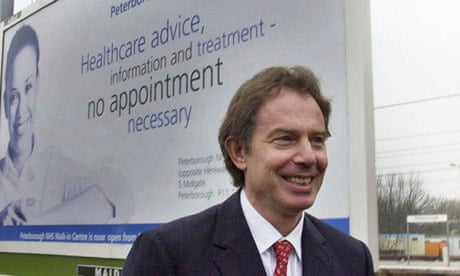

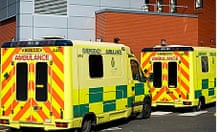

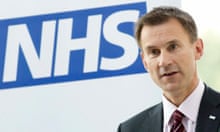

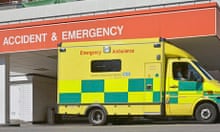
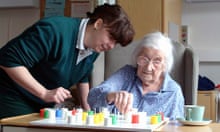

Comments (…)
Sign in or create your Guardian account to join the discussion